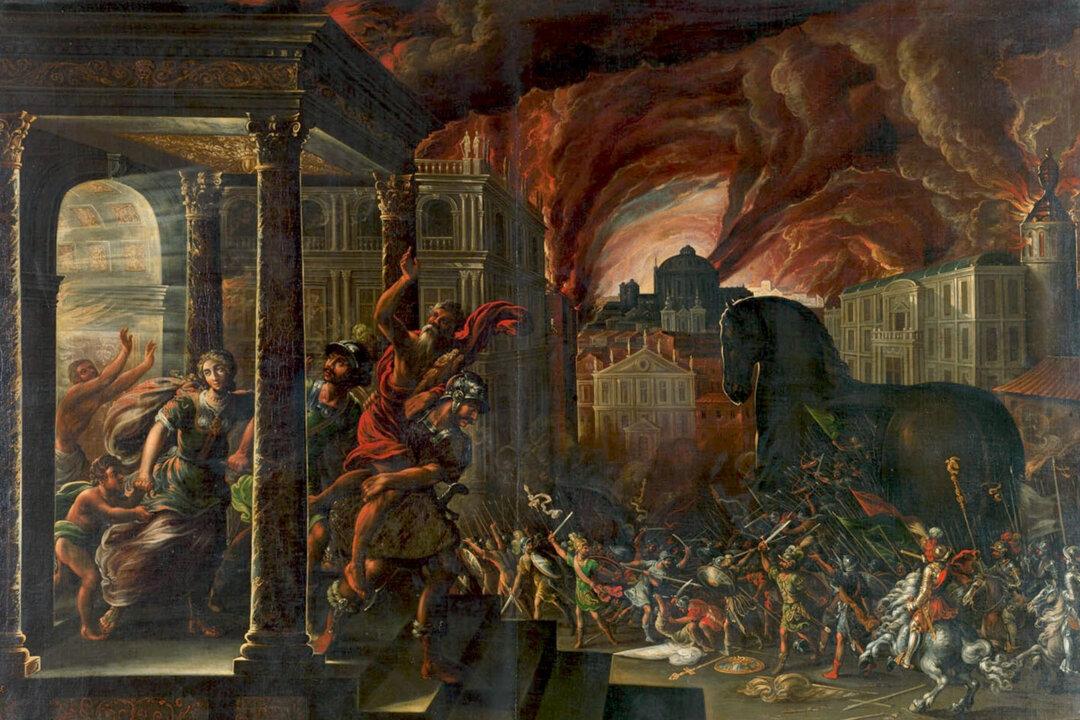We are often compelled to ask why tragedy strikes. Why is reality such that pain and suffering come to the innocent? Why are there, in Virgil’s famous phrase, “the tears of things” in our world—“lacrimae rerum”? These words are perhaps the most mysterious, evocative, and meaningful in all of Latin poetry.
They are the words of the Trojan hero and forefather of the Romans, Aeneas, as he marvels over murals depicting the fall of his home city, Troy.






